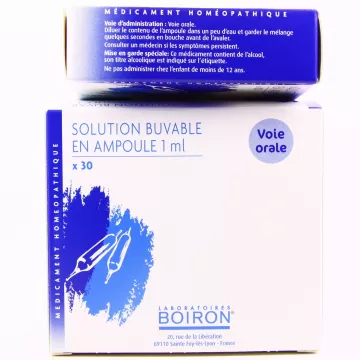What is a skin lesion?
A skin lesion is any change in the appearance or texture of the skin, whether caused by disease, infection, trauma or aging. The types of lesions can vary considerably, from mild rashes to more serious conditions requiring medical intervention.
What are the main causes of skin lesions?
The causes of skin lesions are multiple and can include:
- Infections: Bacterial, viral or fungal.
- Trauma: Cuts, burns or abrasions.
- Autoimmune diseases: Psoriasis or lupus.
- Environmental exposures: Sun, chemicals or allergens.
- Skin cancers: Melanoma, basal cell carcinoma.
How to identify the different types of skin lesions?
It's crucial to know the characteristics of the various skin lesions:
- Rash: Redness or small pimples that may indicate allergy or infection.
- Ulcer: Loss of skin substance, often painful.
- Papule: Small, solid elevation of the skin.
- Nodule: Like a papule, but larger and deeper.
- Vesicle: Small pocket of liquid under the skin.
What treatments are available for skin lesions?
Treatment of skin lesions depends on their cause:
- Topical medications: Creams or ointments to reduce inflammation and treat infections.
- Oral medications: Antibiotics or antihistamines.
- Medical procedures: Cryotherapy, laser or surgery for severe or persistent lesions.
When should I consult a doctor about a skin lesion?
It is advisable to consult a healthcare professional if :
- The lesion enlarges or changes color.
- It does not heal within a few weeks.
- It is painful, oozing or bleeding.
- It is accompanied by symptoms such as fever or fatigue.
How can skin lesions be prevented?
Preventing skin les ions often involves :
- Sun protection: Regular use of sunscreen.
- Appropriate skin care: Gentle cleansing and moisturizing.
- Precautions during high-risk activities: Wearing protective gloves and clothing.
- Regular skin monitoring: Examination of skin condition to detect any early changes.
How to differentiate a benign skin lesion from a malignant one?
Monitoring specific features is essential to distinguish benign from potentially malignant lesions. Warning signs include:
- Asymmetry: If one half of the lesion doesn't look like the other.
- Irregular edges: The contours of the lesion are blurred or irregular.
- Color change: Presence of several colors or color change over time.
- Diameter: Lesions larger than 6 mm.
- Evolution: Changes in size, shape or symptoms such as itching or bleeding.
It's crucial to consult a dermatologist if any of these characteristics are present.
What recent advances have been made in the treatment of skin lesions?
Technological and medical advances have made it possible to develop new, more effective and less invasive treatments for skin lesions. These innovations include
- Targeted therapies: drugs that specifically target abnormal cells.
- Immunotherapy: Using the body's own immune system to fight lesions.
- Gene therapies: Genetic modifications to treat or prevent skin diseases.
- New-generation lasers: More precise and less damaging to surrounding tissue.
Can natural remedies be used to treat skin lesions?
Some natural remedies can be used to treat mild lesions or as adjuncts to medical treatments, including:
- Aloe vera: Soothes and moisturizes the skin, promoting healing.
- Tea tree oil: Natural antiseptic for mild infections.
- Manuka honey: Antibacterial properties for minor wounds.
- Calendula: Reduces inflammation and promotes tissue repair.
However, it is important to consult a doctor before using these remedies to avoid drug interactions or allergic reactions.
How does stress affect skin lesions?
Stress can have a significant impact on the skin, exacerbating or triggering a variety of skin conditions, including:
- Psoriasis: Skin rashes that can worsen during periods of stress.
- Herpes: Stress can trigger outbreaks.
- Dermatitis: Stress can increase inflammatory skin reactions.
Managing stress through activities such as meditation, exercise and good sleep hygiene is essential to maintaining skin health.
Which healthcare professionals should be consulted for skin lesions?
For optimal management of skin lesions, it is advisable to consult several types of healthcare professionals:
- Dermatologists: Skin specialists, they are essential for diagnosing and treating lesions.
- General practitioners: Can provide initial diagnosis and referrals.
- Allergists: Useful for lesions caused by allergic reactions.
- Oncologists: Cancer specialists for lesions suspected of malignancy.


